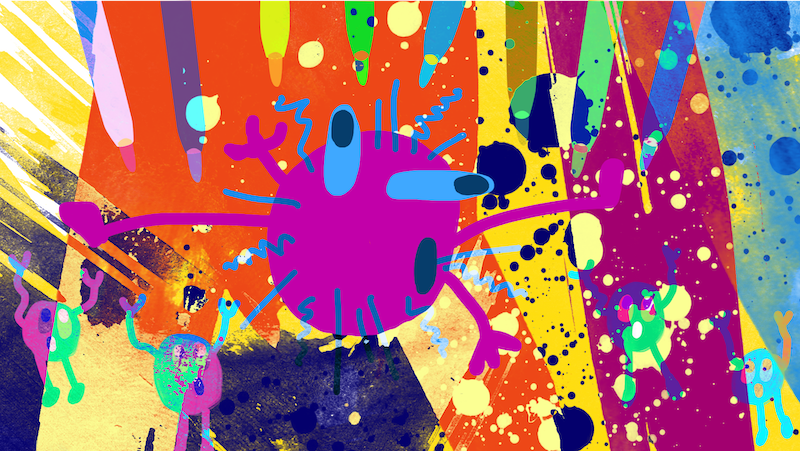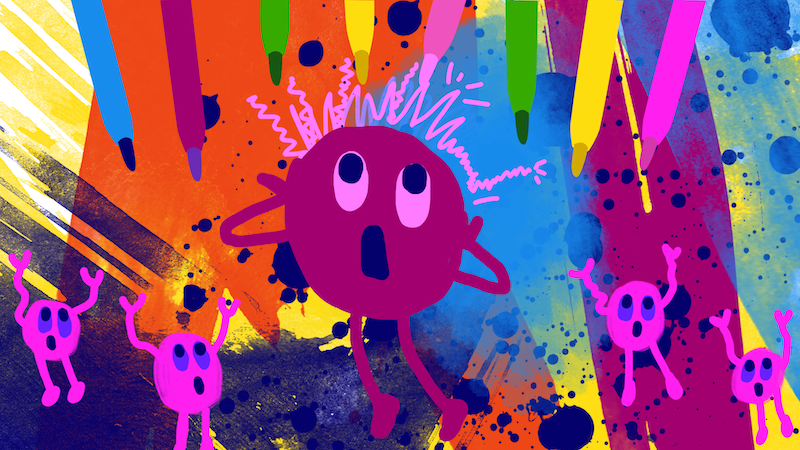When I was a kid I never had a problem with a blank page. Put a drawing pad in front of me and I’d fill it with drawings. I didn’t concern myself with the quality of my work, what other people might think about it, or how it might compare to the work of others.
Up until the age of 6, I remember having complete freedom to draw, color, and paint whatever I wanted, and however I wanted, or at least believing I had that freedom. So why does that belief fade as we get older? It certainly did for me anyway.
I distinctly remember, at the age of 6, looking at another kid’s drawing and for the first time beginning to compare it to my own work. I thought it was a great drawing, an interesting idea and I asked myself ‘Why didn’t I think about doing something like that?’ It was an abstract picture. I didn’t explicitly know what an abstract picture was at that point but looking at this other artwork compelled me to make comparisons.
I usually drew pictures based on the world around me and what I was experiencing at the time. Otherwise, my drawings would represent things I was interested in, like architecture or people. I can’t recall ever drawing an abstract picture before that time – unless finger painting counts. But being confronted with the idea of abstract artwork piqued my curiosity and inspired me to explore this new concept. Was that drawing a new creation that didn’t exist in our world or was it literally the way that kid experienced and saw an everyday object or happening?
Felts Fear Increases Exponentially Over Time?
As I have grown older, I’ve noticed that it has become increasingly more difficult to put pen to paper without the self-critic awakening within me and putting its two cents worth in before I’ve even come up with an idea! This is especially so if I’m using felt pens or any other permanent marker that I can’t erase. Once I make a mark, it’s there to stay. It can’t be changed. Even if you draw over it or try to incorporate it into a rethinking, the original thought still remains for all to see.
These days, I worry about what other people will think of my expression, how it compares to other work, whether I think it’s good or not, whether it serves any purpose, and really, does it need to serve a purpose? The kid that drew that abstract drawing when I was six years old probably didn’t think about me sitting there with my synapses alight in contemplation of what she had just produced. You could say, that every work has a purpose even if the creator isn’t aware of its purpose at the time.
I suppose this seemingly negative, possibly reflective change in thinking, helps us to navigate our way through the world and interact with others, responding to what’s happening around us with a degree of empathy. But I do miss that freedom of expression. I’d like to get back there. I’m not sure if it’s possible, but I’d like to try.
Renea’s Donk Le Ponk de Clompity Clomp book series focuses on different ways to unleash our creativity, find inspiration and express ourselves using our own unique voice.


